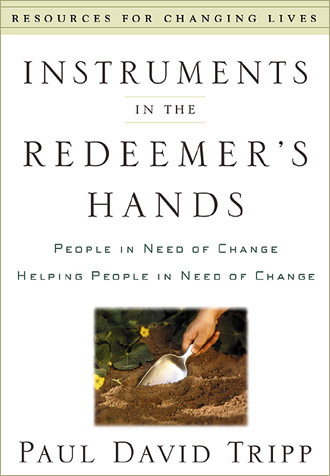 I was reading through Paul Tripp’s Instruments in the Redeemer’s Hands earlier and was struck by his thoughts on confrontation.
I was reading through Paul Tripp’s Instruments in the Redeemer’s Hands earlier and was struck by his thoughts on confrontation.
Our failure to confront one another biblically must be seen for what it is: something rooted in our tendency to run after god-replacements. We confront unbiblically (or not at all) because we love something else more than God.
Perhaps we love our relationship with this person so much that we don’t want to risk it. Perhaps we prefer to avoid the personal sacrifice and complications that confrontation may involved. Perhaps we love peace, respect, and appreciation more than we should.
Here is the principle: To the degree that we give the love of our hearts to someone or something else, to that degree we lose our primary motive to confront.[1]
As if that weren’t rough enough, he goes on…
The foundation of the Second Great Command is the First Great Command—you cannot love your neighbour as yourself if you do not first love God above all else. Our willingness to gossip, to live in anger, and trim the truth reveals something deeper than a lack of love for people. It exposes a lack of love for God.
We no longer serve as ambassadors in relationships but use them for our own purposes. They become places where our needs can be met. Then, because we are afraid to lose what we crave, we live in silence as our neighbour steps outside God’s boundaries.[2]
Wow. That’s really convicting. But he’s not done.
I am afraid we have replaced love in our relationships with being “nice.” Being nice and acting out of love are not the same thing…
We seek to avoid uncomfortable moments, so we see, but do not speak. We go so far as to convince ourselves that we are not speaking because we love the other person, when in reality we fail to speak because we lack love…
The truth is that we fail to confront, not because we love others too much, but because we love ourselves too much.[3]
May we take it to heart.
About Jason Harris
One Comment
Comments are closed.


Yikes!
Good post, Jay. =)